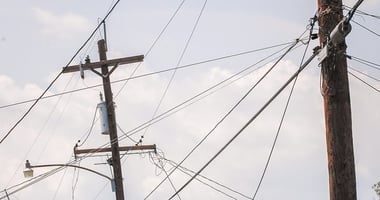Phelps, Schmitt Share Message of Hope at Children's Mental Health Awareness Event
 |
Those are the words of Olympic swimmer Michael Phelps (pictured above), the most decorated Olympian in history, speaking at a special event last night celebrating National Children’s Mental Health Awareness Day. The event, of which APA was a partner, was sponsored by the Substance Abuse and Mental Health Services Administration (SAMHSA) and held at George Washington University. Phelps and close friend Allison Schmitt, also an Olympic medalist swimmer, served as honorary co-chairs.
Phelps and Schmitt spoke of their own experience with mental illness and seeking treatment that helped them move toward recovery. They emphasized the importance of modelling for children that, as Schmitt said, “It’s OK not to feel OK.” Schmitt sought care for depression following the suicide of a 17-year-old cousin. “I’ve become passionate about mental health,” she said.
“Communication is so important, and we make it harder than it needs to be,” Phelps said. “Teaching kids to be aware of their emotions and aware that it is OK to talk about their feelings—I think that is very powerful.”
The theme of last night’s event was “Partnering for Help and Hope.” SAMHSA presented three panels of experts who discussed partnerships involving pediatric and mental health clinicians and families. Child psychiatrist Adair Parr, M.D., who received training from APA in the collaborative care model, spoke about her experience working with Potomac Pediatrics, a group practice in Rockville, Md., where she is implementing an integrated/collaborative care model to care for children with emotional and behavioral health needs.
Parr told the audience that the collaborative care model promises to extend quality mental health care through the collaboration of a psychiatrist with primary care physicians to millions of people who otherwise might not receive care.
“I work with the pediatrician and nurse care manager to help primary care manage anxiety and depression,” Parr said. “We are also able to identify patients who are not progressing toward recovery, who need the more intensive attention I can provide.”
For more information, see the Psychiatric News article “Advanced Training in Collaborative Care Offered in APA Online Program.”
(Image: Mark Moran)





